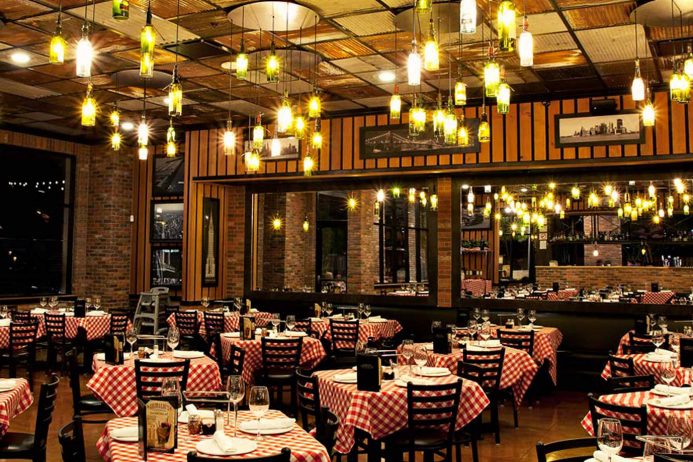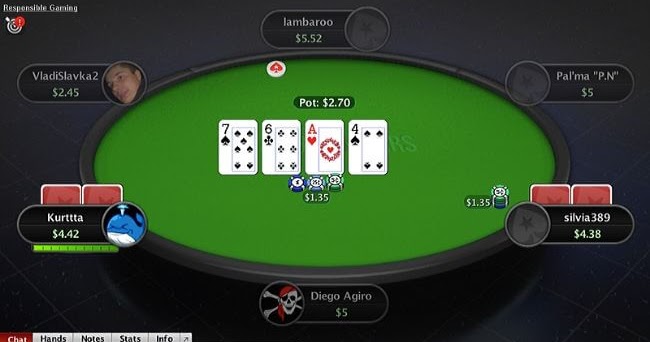Despite sharing the same rules, live poker games are quite a bit different than their online counterparts. Whether it is the excessive limping or constant table talk, live poker presents unique variables which may be unfamiliar to online regulars. That said, live games are usually a lot easier to beat than online ones. Poker Table Selection. Poker table selection is identifying the best table(s) to play. You should always carefully select the games you play. Poker is super competitive with strong players and “regs” at all stakes. You want to make things as easy as you possibly can by playing with the weakest players possible.
- Live Poker Table Selection Services
- Live Poker Table Selection Center
- Live Poker Table Selection Guide
Live Poker Table Selection Services
View the Borgata live poker game report to see how many tables are live, the blinds, and the types of games being played. Select Check-In. Select Check-Out Guests. There are some tables you want to avoid like a red plague, or move to another table ASAP. Little is written about table selection. Yet, I see players changing tables quite often in cash games. Poker table selection software typically scans every table at a user selected limit and game type to get a list of tables and players. It then uses a local database of player statistics (such as one from Poker Tracker 3) to calculate how 'fishy' the table is.
I arrived very early one morning at a nearby poker room. There were two tables, each with a seat available. I had my pick.
I looked around both tables for the clues I usually search for when sizing up a game and deciding where to sit. I decided which of the two seats was likely to be better for me, for reasons I'll reveal in a bit, and sat down.
As I did, one of the players at the table looked up and said, to be helpful, 'I don't know if you want that seat, buddy. The guy who left it just dropped a ton of money.'
I thanked him, sat down, saying that from my experience if a guy loses a lot of money that means that the seat is going to be lucky for the next guy.
Of course that's not really how to determine whether a seat is likely to be profitable. But it's what some players think. So I thought it made sense to reinforce that view — letting others think I might be a superstitious player.
In truth, though, I had considered many other, genuinely significant factors in mind when choosing my seat that I'll share with you here.
Here is a list of some questions to ask to help you judge which seat that's open might have the most profit potential.
1. Is there sufficient money on the table?
Sometimes a seat isn't likely to be profitable because the table as a whole doesn't have enough money on it. If everyone, or nearly everyone, is playing with short stacks, the rake is likely to eat up all of the profit you can expect.
As a general rule of thumb, I want three or four players to have stacks of at least 100 times the big blind ($200 in a $1/$2 game), and most of the other players to have at least 50 big blinds. So if I see a table with a whole bunch of stacks under $100, even if I judge most of the players to be poor, I'm inclined to take a pass and look elsewhere.
2. What is the quality of the players at the table?
In general, I want a game where at least a few of the players appear to be relatively poor. If I see a table filled with good guys I know to be good or better, without even a couple of potentially soft spots around the table, I am inclined to keep looking for a seat elsewhere.
3. Is the empty seat to the left of one of the large stacks?
As the great poker theorist Mike Caro has pointed out, money tends to flow clockwise around the table. You're more likely to win money from a player on your right than from a player on your left. That's generally because with the large stack on your right, you have first crack at his big stack.
That means an empty seat to the left of a large stack should be more inviting than one on the big stack's right.
4. Is there action?
It usually doesn't take that long to see if the game is lively or a rock garden — just a few hands is often enough. Are players all folding preflop? Do players tend to call a preflop raise? Are some at least willing to gamble it up from time to time?
Yes, it's true that a really good player can make money no matter what the level of action is in a game. But in general, your ideal game is one with a lot of loose and passive players — with players doing a lot of checking and calling.
A few hands should reveal enough to make a good estimate of the character of the game. Your best and quickest indication of this is to see how many players are still in for the turn and the river. If it's always heads-up, or if hands rarely even get to the turn, that's a sign that there are few if any loose gamblers at the table.
5. Are players generally having a good time?
Live Poker Table Selection Center
You're much more likely to win money if players seem to be having fun. If players seem somber and serious, that's not a good sign.
What you want to look for is laughing, perhaps some drinking, and maybe even a few Keno betting slips — that is to say, indications the players are playing poker more to have a good time than to earn their living.
6. Where is the seat relative to the aggressive and tricky players?
Assuming the table as a whole is acceptable, you ideally want the seat to the left of the tricky, loose, and aggressive players. You want the advantage of seeing how they will act before you decide to enter the pot, and before you decide how you will play your hand.
If there's an active, aggressive player sitting to your right, for example, you are better able to consider that action before deciding whether and how to play your hand. Similarly, you'd prefer not to have him on your left, lest you find yourself having to face a raise or reraise from him after you have already entered the pot.

Other Questions

There are some other considerations worth making as well, especially if it's a close call between two available seats:

- Does the big stack look like he's getting ready to leave? If he does, the quality of the game may diminish significantly.
- Is the game likely to break up soon? If it's short-handed already and one or two players look like they might be leaving, you may be better off elsewhere.
- Has the big stack stopped gambling? Sometimes players shut down after winning a large sum of money, opting to 'sit on their profits.' If he isn't giving any action, his large stack isn't really a target, and (again) you might be better off elsewhere.
- How fast is the pace of the game? Ideally, though you want to be in a game where people are having a good time, if there are any really drunk players in the game, the action may be significantly slowed, reducing the number of hands per hour from which you can win money.
Conclusion
Live Poker Table Selection Guide
Many of these questions apply equally well when playing poker online (on sites where you are allowed to select your seats, that is). Picking the right seat is no guarantee of winning, of course. But picking the wrong seat can severely limit your ability to win.
If you can, take at least a few minutes to size up the likely profitability of the seats that are available before you sit down. Then, even after you sit down, occasionally monitor the other games to see if a move might be profitable. Finally, make sure to get a seat-change button for your game, just in case a more profitable seat at your table opens up.
Ashley Adams has been playing poker for 50 years and writing about it since 2000. He is the author of hundreds of articles and two books, Winning 7-Card Stud (Kensington 2003) and Winning No-Limit Hold'em (Lighthouse 2012). He is also the host of poker radio show House of Cards. See www.houseofcardsradio.com for broadcast times, stations, and podcasts.
Tags
live pokeronline pokerno-limit hold’emseat selectionposition
Video Software Review
Poker Table Finder Synopsis
The developers at Poker Pro Labs have done it again and given players of all game types and stakes an absolutely invaluable tool for finding a great table. The best part is that it’s also free. Poker Table Finder is the latest tool that is totally free and web-based, so there's nothing to pay for and nothing to download and install.
Poker Table Finder Full Review
There are a few websites out there that essentially have the same function as Poker Table Finder from Poker Pro Labs. They search through active tables using a database and generalize them as being good or bad. What separates Poker Table Finder is that it has more filters and supports more games on more rooms than any other table selection software.
When you first visit the site, you'll immediately want to 'Show Advanced Filters,” which will help you find the tables you are looking for. They include Poker Network, Limit Type, Game Type, Stakes Min, Stakes Max, Players Min, Players Max, Players Per Flop % Min, Players Per Flop % Max, Hands Per Hour Min, Hands Per Hour Max, Average Pot Min, and Average Pot Max:
The results when you enter in a search query are lightning fast. For example, if I decide that I want to play $0.10-$0.25 Pot Limit Omaha on PokerStars, I'll just enter in the variables of PokerStars, Pot Limit, Omaha, Min $0.10 Stakes, and Max $0.25 stakes. Within a millisecond, I'm given an 11 column report with Poker Network, Table Name, Game Type, Limit, Stakes, Players, Average Pot, Pot BB, Players Per Flop %, Hands Per Hour, and Table Type.
Under Table Type, I am given a colored light, with green being 'Go there' for Super Loose or Loose tables, a question mark for 'Neutral' tables, and an orange light for “Tight Tables.” From this report, I can eliminate four of the tables from the 21 that came up in the report since they have low average pots and tight players. How huge is that? I can also see, more importantly, that five of the tables are 'Loose' or 'Super Loose,' meaning that I should be playing there because the pots are big and the players are ready to give their money away.
For poker players, picking the right table can mean all of the difference in the world to your win rate. Getting stuck at a table full of nits is a grinder's worst nightmare. Poker Table Finder is absolutely fantastic and the fact that it has so many supported poker rooms and so many filters makes it the most valuable table selecting tool for free ever released.
Member Reviews


No reviews for this software yet